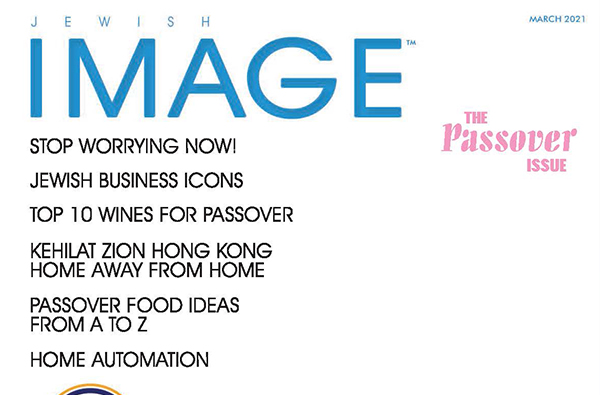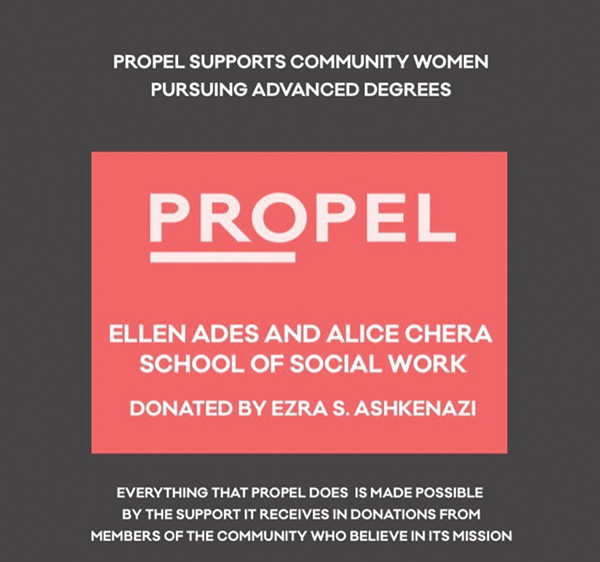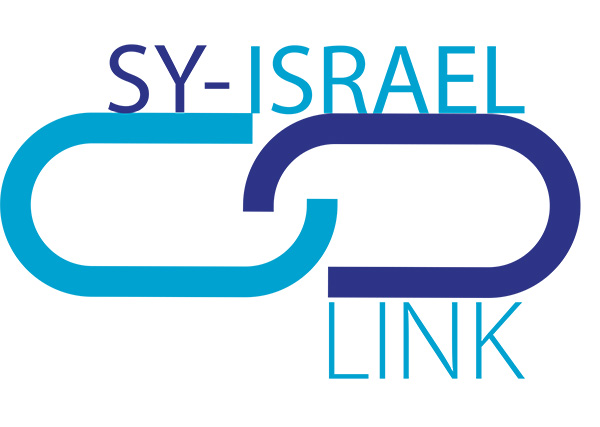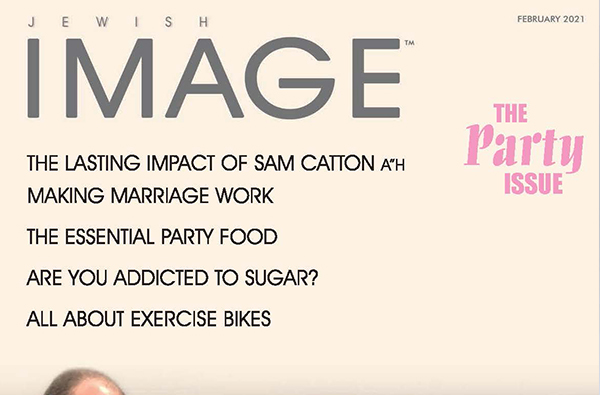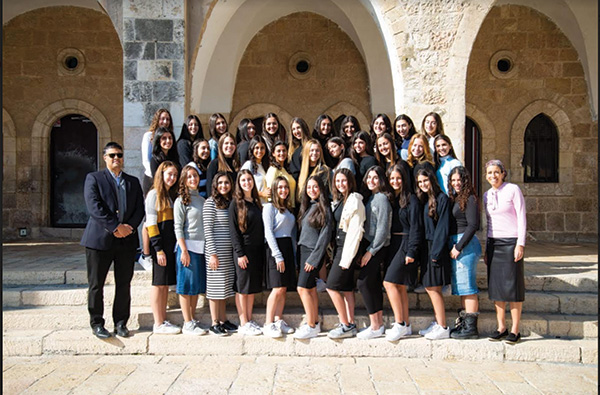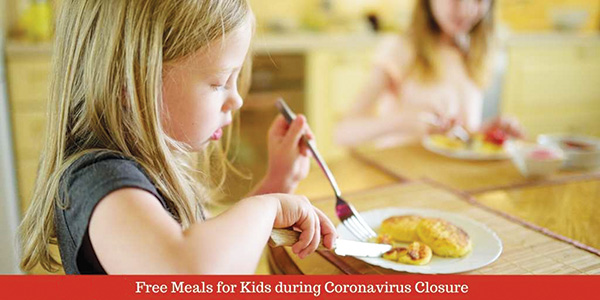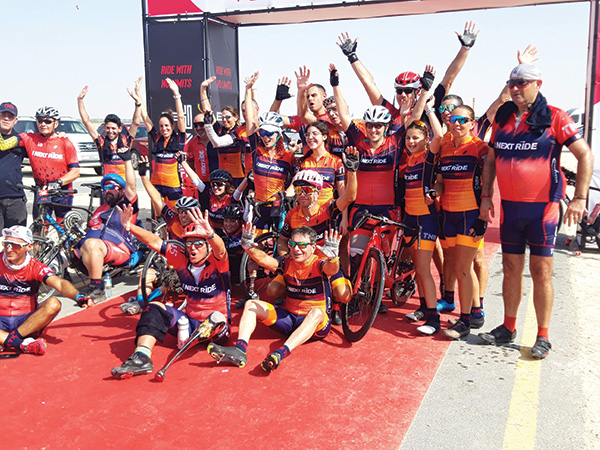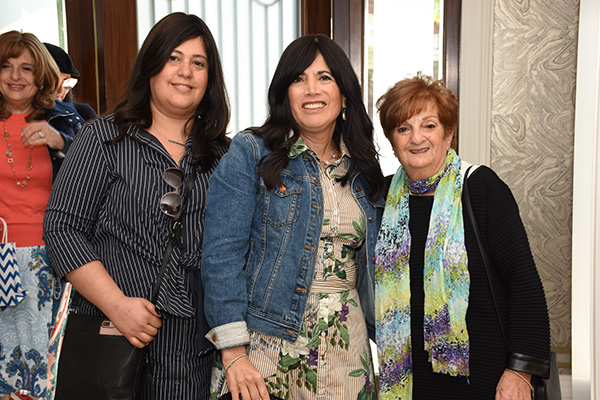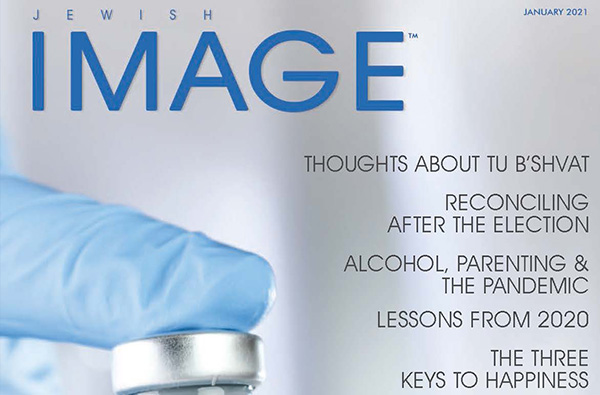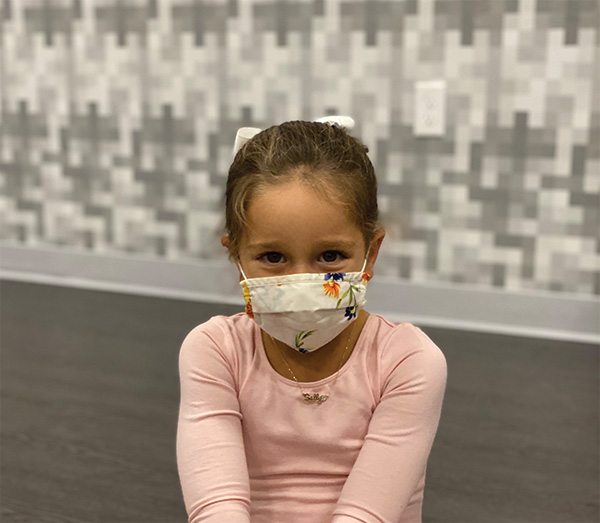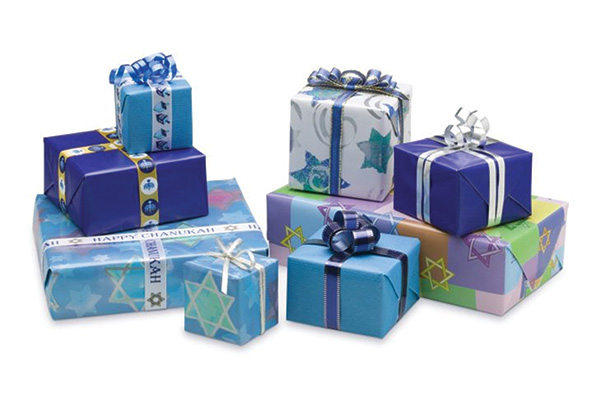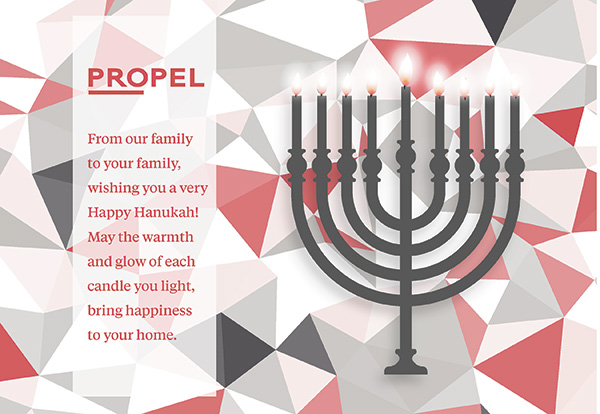PROPEL: PROFILE IN COURAGE
LAUREN IS A MOTHER OF FOUR WHOSE YOUNGEST CHILD, RENEE, HAS FACED LIFE-THREATENING HEALTH CHALLENGES SINCE HER BIRTH, 16 YEARS AGO. WITH PROPEL’S SUPPORT, LAUREN WILL BE BEGINNING COLUMBIA UNIVERSITY SCHOOL OF SOCIAL WORK’S MASTER PROGRAM IN SEPTEMBER.
When you meet Lauren Dayan, one of the first things she says is, “I’m just like all mothers.” Well, that might be true—if every mother is Supermom! A graduate of Hillel Yeshiva, Lauren got engaged in her senior year of high school and married shortly after her 18th birthday. She went to FIT for a year, focussing on interior design, but then put her schooling on hold as she and her husband began their family. Lauren became involved in her children’s school, working with the PTA, serving lunches, going to Little League games—“like every other mother.”
After having three sons, she became pregnant for a fourth time, and was ecstatic to discover that she would be having a girl. During this pregnancy, she points out, she was very involved in many hesed activities in the community and beyond.
When Renee was born, life took a turn. Lauren held her for a few minutes and then she was whisked away to the NICU. She recalls hearing a woman in the next room crying because her baby wouldn’t nurse properly, and thinking, “At least she can hold her baby.” The Dayans began a journey which continues until today. After shuttling from hospital to hospital, Renee ended up in Boston Children’s Hospital, with a feeding tube, where she remained for almost a year. Lauren would spend all week with Renee and fly home for weekends to be with her husband and three young sons. Her mother moved in, and ran the Dayan household. Lauren says that she could not have gotten through this first “new normal” without the love and support of her parents, husband and sons.

When Renee came home, Lauren recalls, “I had to change what I thought was my perfect life to the new normal. I could accept it or say, ‘Why me?’ Everyone has challenges—and this was ours.” Caring at home for a child with such significant medical needs was uncommon, but the community rallied around the family, providing volunteers who helped with any task. Lauren says, “My sons (now 20, 22 and 24) are amazing. They have helped shape my life. Their compassion and love for their sister and support of Mommy helped me continue to be the mother that I am.”
When Renee was old enough for preschool, Lauren contacted Magen David Yeshivah, but warned them, “She isn’t like a normal kid.” Rabbi Hilsenrath’s bemused response was, “What’s normal?” and Renee was accepted. With Terri Mizrahi’s leadership at the Early Learning Center, Renee went to school every day with a nurse and received all her services at school. With Renee at school, Lauren decided that it was time for her to return to school. She was no longer interested in interior design; rather, she wanted to help others, and decided to pursue occupational therapy. She began at
Kingsborough, earned her associates’ degree and then transferred to Brooklyn College, where she continued her pursuit of excellence.
At age 11, Renee transferred to the Shefa School in Manhattan, where she quickly became part of the school family. One day, the psychologist called Lauren and said “she’s not acting right,” but by the time Renee was home, she seemed her usual self. That weekend, as she was studying for finals, Lauren noticed Renee slurring her words and complaining that she had numbness in her arm. Having just taken a course in stroke and aphasia, Lauren says, “I knew there was something going on.” A visit to the hospital ended with them being sent home and a round of misdiagnoses.

The family pediatrician revealed that Renee was having transient strokes, where she would “space out” and, by the time they got to the hospital, be back to herself. Desperate, Lauren videotaped one of Renee’s episodes so that she could qualify for an MRI. After being told that there was “nothing wrong” with Renee, and that these episodes were a psychological and behavioral issue, the Dayans returned to Boston Children’s Hospital, where they were told that due to the strokes, Renee needed brain surgery. The surgery was scheduled for a few months out, and Renee continued to go to school, with Lauren at her side. The plan was that she would return to school after the surgery, and life would resume.
Lauren reminisces, “We plan and G-d laughs.” Renee had a massive stroke, and the family now had a new—new normal. With help from family, friends and the community, the house was modified and extended to meet Renee’s needs. After another year in the hospital, Renee came home. With nurses, therapists, family members and volunteers, and Lauren coordinating the entire picture—life became normal. Renee was bussed to school in Blythdale Children’s Hospital (in Westchester) every day, and Lauren returned to college. And then Renee caught the flu and almost died. Ironically, one of Lauren’s classes that term was Death and Bereavement. She felt that she was living what she was learning. Lauren got permission from her professors to learn remotely—before COVID! This continued when the pandemic struck, and all colleges transitioned to distance learning. She acknowledges the support of Brooklyn College and its faculty in helping her achieve her degree, which she earned with the high honor of summa cum laude.
At this point, Lauren stopped thinking about becoming an occupational therapist. With the support of Renee’s doctors, therapists and caregivers, she started exploring how she could help other parents who experience sudden trauma with their children. Her experiences taught her that she could be a source of inspiration, compassion and support. She started a parents group at Blythedale for parents “who I met in the hallway whose lives were turned upside down.” She felt they needed to hear from others that, even though things would be different, they would be okay. “Perfect,” she says, “is boring.” COVID complicated matters. For three months, Lauren could not leave the hospital. Her family could not visit. It was lonely. Now, Lauren goes home for Shabbat and on Sunday to be with her family, who FaceTime Renee daily. As Lauren says, “her eyes and her smile communicate.”
Encouraged by the doctors at New York Cornell, she set her sights on the Social Work program at Columbia University. Lauren reached out to PROPEL for help with the application process. Working with the PropelED team, Lauren refined her essays, and was accepted for the next cohort. She will be beginning her graduate studies in September 2021. Her immediate goal is to get Renee home and get her the care that she needs. Lauren knows that it will be a challenge to be a wife, mother, caregiver and graduate student. But, she says, “I feel that Hashem helped me through all these hurdles—this is just another one.”
Lauren’s Advice: Self-care is important. If you care for yourself, you will be better able to care for others. Every person has one kind of journey or another. If you have a dream, go for it! Don’t let tough challenges hold you down—let positivity push you forward. The sky’s the limit!
If you are interested in a career, please reach out to PROPEL. We can help you fulfill your professional goal. Follow PROPEL on Instagram @PropelNetwork
Call: 646-494-0822 or email info@thepropelnetwork.org.
IS ISRAEL ON YOUR MIND?
SINCE ITS INCEPTION, THE SYRIAN SEPHARDIC JEWISH COMMUNITY HAS CULTIVATED AND NURTURED A STRONG BOND WITH THE LAND OF ISRAEL. WE ARE EDUCATED ON ITS HISTORY IN OUR YESHIVOT. FAMILIES HAVE LONG MADE IT THE CENTERPIECE OF THEIR MILESTONES, CELEBRATING BAR MITZVAHS AND WEDDINGS ON ITS HOLY GROUNDS.
There is no disputing the relationship that any one of us have towards Israel and yet, the possibility of investing in a second or primary residence seems remote and untenable to many. SY Israel Link, a new non-profit presided over by Rabbi Moses Haber, hopes to dispel any notions of impracticality. The board is composed of a dynamic group, including VP Moshe Laniado, Secretary Eli Mizrahi, Treasurer Ralph Sasson and Director of Marketing, Daniel Levy. They all work tirelessly towards one goal, to deepen our community’s commitment towards the Holy Land.
SY Israel Link was founded with a simple mission: to promote and facilitate the strengthening of our community’s bond with Israel. It is their belief that moving towards investing, whether it be as a business opportunity or a temporary residence, is one realistic way to begin. Apparently, others agree. A survey conducted by SY Israel Link uncovered a keen interest amongst participants, ages 35 to 65, in purchasing property in Israel. Overall, their reluctance stemmed not from a lack of desire, but trepidation surrounding the process. Common concerns included: Which city should I look in? What kind of neighborhood best suits my needs? Where do the majority of the other Syrian Jewish families live? In other words, people did not know where to start. Consider then, SY Israel Link as your resource.
The group continues to survey community members in order to gage a clear picture of the wants and needs of those who are considering an investment in Israel. For example, they’ve found that 34% of participants view an investment as a stepping stone towards moving. But their reasons vary; 23% see the residence as a security home, while 21% would like to move full-time and 10% are more interested in a vacation home. As they gather more data from the community, SY Israel Link is better positioned to guide prospective buyers through their process. So far, the organization has identified over 150 Syrians who have made aliyah over the last 35 years. They include members from all segments of our community, from teachers and rabbis to lawyers and tech entrepreneurs. SY Israel Link has mapped out their locations and they can be viewed on the organization’s website. They’ve also contacted many of these individuals, who are ready and eager to help and welcome new community members in any way that they can.
The organization is poised and ready to inspire, educate and simplify the process of investing in our homeland. They understand the hesitancy to jump into an investment. Rather, SY Israel Link encourages incremental steps towards a longer term goal: the establishment of a flourishing Syrian Sephardic community in Israel. These steps can include more Friday night dinner conversations, formal and informal education, or a family commitment to visit Israel if and whenever feasible.
The current tenuous political climate, growing anti-Semitism and a government that seems increasingly divided has left many in our community feeling lost and untethered. More and more, Israel represents a beacon of hope for those seeking opportunity, whether that be via professional advancement or spiritual growth. And while it has become apparent, perhaps more than ever before that Israel is our one true home, there is much to uncover without making the move just yet.
SY Israel Link is not asking you to pack your bags tomorrow, but rather, to begin the process of genuinely understanding what it might look like to plant the seeds of your future in Israel. The data clearly shows that many in our community are seriously considering an investment in Israel. SY Israel Link asks that you complete and share their survey so they can continue to better their efforts in abetting this process, bringing our community one step closer to our homeland.
You can find it and other resources at their website: syisraellink.com.
NORMA COHEN: BRINGING MAGICAL MOMENTS TO LIFE FOR THREE DECADES & COUNTING
Every little girl dreams of her fairy tale wedding, whether it is an event flowing with orchids and pure white organza, or a dramatic backdrop, dressed up with mirrors and red roses by the thousands. She pictures her ball gown and veil, in lace or in satin, and envisions her groom beside her, love permeating it all. In order to achieve such memorable glamour, many turn to the professionals, and Norma Cohen Productions is the best of the best. Recently recognized in Brides Magazine’s Top 100 Wedding Planners in America, Norma has spent most of her life as an event planner, and like the finest of wines, she only gets better with age. She explains,
“There is nothing that gives me greater joy than seeing the look on the couple’s faces when they walk into the room for the first time. If I did my job correctly, the decor tells their story. It looks and feels like them, it’s a place where they can feel good taking their first steps as man and wife. It’s not a home, exactly, but it’s the place where their story as Mr. & Mrs. begins. It’s important to get it right.”

These spectacular evenings do not happen by accident. Meeting after meeting produce design inspiration and allow for a true relationship to grow between Norma and her clients. “I listen, and learn, and get to know the couple. This is crucial to the planning process.”

This is an intimate time in a person’s life and Norma is there for all of it, not only as a planner, but emotionally, as a confidante, adviser, and friend. There were more hugs than handshakes.
Norma began planning parties at just 16 years old. She was mentored by the best, volunteering in the Sephardic Community Center, planning teen events, fashion shows, concerts and more. A prodigy, she was the first female teenager to join the board of directors, helping giants like Morris Bailey, Bunny Escava, Eddie Catton A”H, and Gita Sultan keep their fingers on the pulse of the young generation. This is where Norma got her education, not only in organization and planning, but in being a community leader. From there she began to plan business events and gatherings, bar mitzvah’s, sweet sixteen’s, 40th birthday parties, and finally weddings.
Today, Norma’s events know no bounds, spanning the world itself—from every premier venue in NYC to London, Paris, Puglia, Sardinia, and beyond. And still, interwoven in every moment of work is the knowledge that community comes first. The volunteer work she has done over the past forty years is indescribable. The same effort that is given to a wedding in the Pierre is lavished on a SAFE breakfast in Deal, or a Special Children’s Center dinner in Cipriani. There is no charitable organization that she refuses.
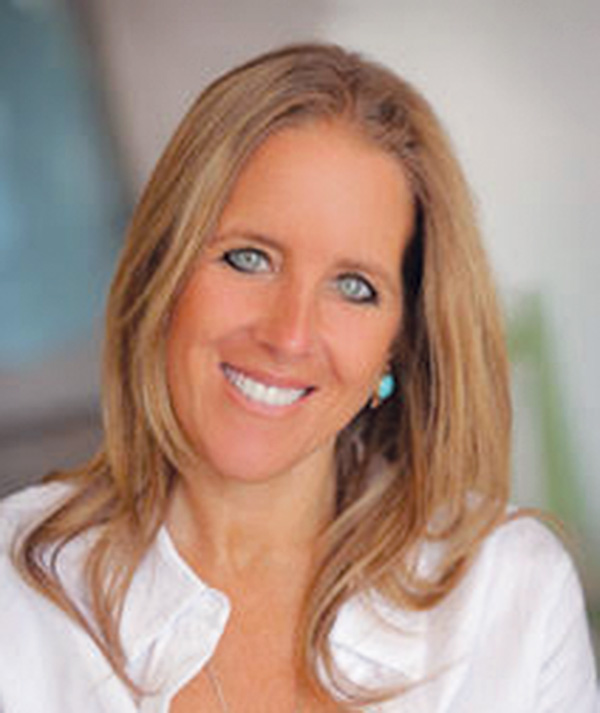
Norma’s years of experience, as well as her on-the-job-training have led to the most beautiful and elegant weddings in the world. After agreeing upon a budget, a venue is chosen, a caterer, florist, musician and lighting crew. Invitations, valet, and thousands more details must be arranged as well. The design of the party is the most fun and memorable, and no one does it like Norma Cohen. She explains, “For so many years I would be planning events for the same people in the same venues, week after week, year after year. The need for originality was fundamental. I wanted the guests to walk into a venue like Shaare Zion and feel like they were in Central Park, and it worked. Sometimes the Pierre looked like a winter wonderland, and others it looked like the Garden of Eden. For a bar mitzvah, maybe I’d bring the Polo Bar to Brooklyn. It’s all in the details. We always look for new ideas, new centerpieces, new twists on tradition and new ways to turn things around. Today, social media has changed the way we entertain. With Instagram and Snapchat, every event is on display for the whole world to see, captured in a photo and sent around the world in seconds. I have to keep reinventing the wheel. It’s challenging, but it’s also fun when it all comes to life.”
Dressed in six-inch heels at all times, Norma is upbeat and positive—a force of nature, setting the mood for the once-in-a-lifetime events she is famous for. She is ready for anything, because in her experience, anything can happen. Not to worry, though. Norma is a fast thinker, always on her toes and always prepared with a back-up plan. This has come in handy over the past year, as 2020 has kept us all on the edge of our seats.

“During Covid, we have all had to learn how to pivot. Weddings have gone from 600 people extravaganzas to 20 people gatherings. Engagements have transformed into wedding days and zoom has become a household word. Laws change on a dime, and from one moment to the next, we never know what to expect. We still don’t. My advice to the brides of 2020, from day one was the same. Marry now—party later. Some days we were able to party harder, others, not so much, but what is most important, as I’ve always said, is the bride and the groom. When they wake up the next morning as husband and wife, all is right in the world. Throughout this pandemic I have done my best to give the brides confidence, to respect the times and ensure that every couple had the most beautiful wedding—a fairy tale wedding—even if it was just a family event, because as we have all learned, especially this year, family is most important.”
A role model for women, Norma works hard, but puts family first. Her office staff acts as her right hand, helping with computer work, ordering and logistics. She has go-to vendors whose performance and reliability she depends on to assure she delivers a high-quality, one-of-a-kind wedding to her clients. Her proudest moment? Her son’s wedding! Both professionally, and personally. She explains, “I’m busy, I won’t lie. More days than not, my calendar is jammed with back to back meetings. I don’t have time for book clubs or tennis leagues, but I make time for the people I love—my children, my parents, my close friends. And very often my clients become those friends I’m making time for. I love what I do. I love having a hand in creating an event that people will remember for years. I love being an instrumental part of the most important day of a couple’s life. I love seeing my brides years later, toddlers in hand, reminiscing on that magical evening. Most of all I love how my experience guides me in everything I do.”
SOPHIA FRANCO
MET COUNCIL FEEDS THOUSANDS OF HOLOCAUST SURVIVORS ON MLK DAY AS GOVERNMENT FUNDS RUN OUT
In celebration of Dr. Martin Luther King Jr., hundreds of volunteers joined Met Council for its annual MLK Day of Service and signed up for shifts at Met Council’s Greenpoint Fulfillment Center to help package emergency food deliveries for Holocaust survivors on the January 18th holiday. Four, 90-minute socially distanced shifts HAD NEW YORKERS PROUDLY FILLING THE immediate demand FOR FOOD, in service of their neighbors.
The city funding behind the Greenpoint warehouse has run out and unless the city comes up with emergency funding for food providers, thousands fewer deliveries will be made. In May, the city acted boldly to get $25 million distributed to soup kitchens and food pantries that knew their communities best. More than 575 pantries benefited from that emergency money and were able to increase capacity, staffing and food distribution. Unfortunately, that grant ended on December 31st.

“It was a true joy to see so many volunteers turn out in service of their neighbors and giving their time in honor of Dr. King’s legacy, but our capacity to manage big distributions like this will suffer unless the city comes through with more funding,” said David G. Greenfield, CEO, Met Council. He continued, “It was an incredibly hopeful moment in what has been an otherwise dour start to the year. I hope the city recognizes the great need in our city and prioritizes emergency funding for food providers like Met Council. Our staff and volunteers have worked nonstop since this pandemic hit, but we need more help.”
“The influx of volunteers who signed up for these shifts on Martin Luther King Day was truly impressive and we are so thankful for the response,” said Leah Schechter, Met Council’s Senior Director of Volunteer Services and Donor Engagement. “The community really showed up to help us in our effort to feed our fellow New Yorkers. And I was proud to see all the young faces eager to learn and quick to embrace empathy at the S.N.A.P. Grocery Store Challenge on Monday evening. New Yorkers are at their best when they come together to help each other.”
In partnership with the UJA Federation of New York, Met Council called on volunteers to sign up for a shift, hundreds of volunteers quickly signed up. PPE was distributed to all workers and masks were required at all times, as they always are at Met Council volunteer locations.

Though the typical, in-person acts of service had to be limited to the volunteer shifts, Met Council also hosted a virtual S.N.A.P. Grocery Store Challenge on Monday evening so families could get involved and support Met Council’s clients. The one-hour interactive event was centered on building empathy and solidarity for clients of Met Council and all those who receive federal food benefits.
Met Council has delivered thousands of meal packages to struggling families, Holocaust survivors, and other homebound New Yorkers since the start of the pandemic. As economic conditions worsened, Met Council expanded their operations, rapidly scaled up deliveries, and opened a new warehouse in Brooklyn. With so many Holocaust survivors vulnerable to COVID-19, Met Council pledged to provide weekly deliveries through not only the end of the pandemic, but for the rest of their lives.
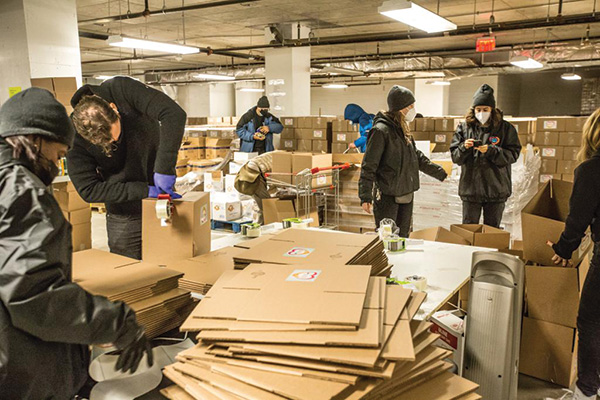
Met Council is America’s largest Jewish charity dedicated to serving the needy. The organization’s ten different departments are staffed by experts who help hundreds of thousands of clients each year and advocate on behalf of all needy New Yorkers. Met Council’s programs range from 100% affordable housing at 20 locations to an award-winning family violence program, Holocaust survivor assistance, senior programming, crisis intervention, to the largest free kosher food distribution program in the world. Met Council’s network of 101 food pantries, affordable housing sites, and JCCs provide services directly in neighborhoods across New York.
Read Jewish Image Magazine Online – February 2021
Read Jewish Image Magazine Online – February 2021
Click Here
To View Jewish Image Magazine in PDF
Click here
HIGH HOLIDAYS IN JERUSALEM
LEAVING MY FAMILY, FRIENDS, AND THE COMFORTS OF MY HOME FOR A YEAR IN ISRAEL WAS DEFINITELY NOT AN EASY THING TO DO, ESPECIALLY DURING THE WORLD PANDEMIC THAT WOULD RESTRAIN US FROM HAVING A NORMAL GAP YEAR EXPERIENCE. IT WAS EXTREMELY DIFFICULT FOR ME TO PACK UP AND LEAVE EVERYTHING BEHIND.
However, going to Israel for the year has been a dream of mine since I was young and I’m so content with my decision to do so. I was debating for the longest time whether seminary was the right fit for me. Choosing Midreshet Eshel to be my home for a year or so was the best choice I ever made.
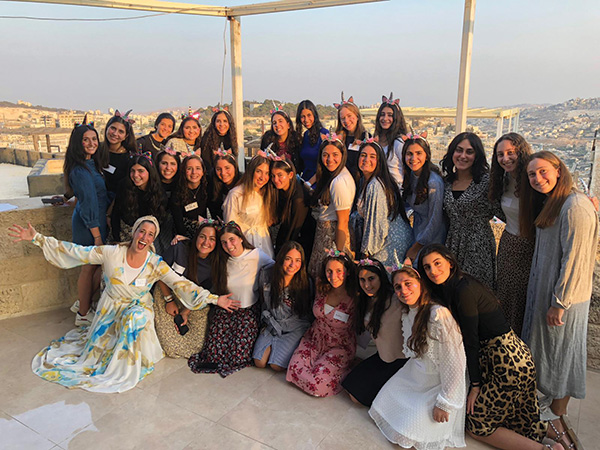
Leaving my family and friends for the holidays was very hard for me and for the first time in my life, this year I spent all the High Holidays without being surrounded by my immediate and extended families. It was definitely unfamiliar and difficult considering the fact that we spent Rosh Hashana, Yom Kippur, and Sukkot all under lockdown in the Old City of Jerusalem. However, to be quite honest, these holidays were so touching and meaningful and I will remember them for the rest of my life.
Learning and studying about the Kotel and the Old City and its history came to life when I moved into Eshel in September. My Rosh Hashanah experience was indescribable, we had the entire Kotel to ourselves as no one else was allowed in the area due to the Covid-19 lockdown in Israel. All the students spent the entire holiday getting to know one another and developing deep, personal friendships. With no phones in sight and sharing incredible experiences with one another, we quickly became a family. During Rosh Hashanah, we completed reading a full book of tehillim by Kever David and we danced and sang in the streets feeling Hashem’s presence dwelling within us. We prayed and sang with so much passion and meaning at the Kotel. Nili, one of our beloved teachers was instrumental in making this holiday season an incredible experience.
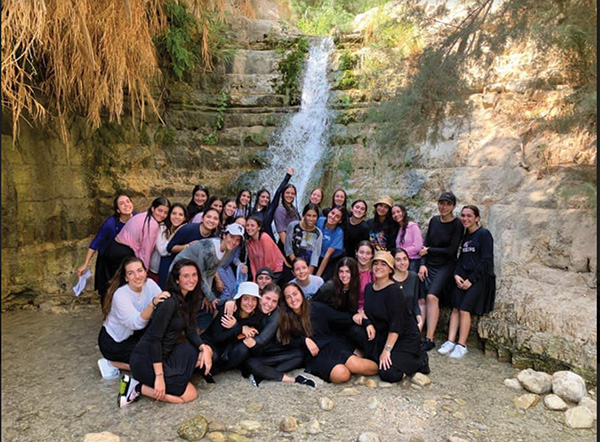
Hearing Selichot live at the Kotel and being one of the very few fortunate people who were allowed to even go to the kotel was a huge miracle for me and enhanced my relationship with Hashem so much. Yom Kippur was spent like no other in my entire lifetime. Usually, it’s routine to go to shul, pray without really understanding what I’m saying, and sleep off my hunger. However, here in Eshel, I learned what Yom Kippur was all about and how we are really supposed to be spending this holiday. Instead of just reciting words that no one really understands, all day, our teacher led Minyan and taught us all about the meaning behind everything we were saying. It was the most meaningful, and connecting prayer. I will never forget the stories, teachings, singing, and thoughts that were shared.
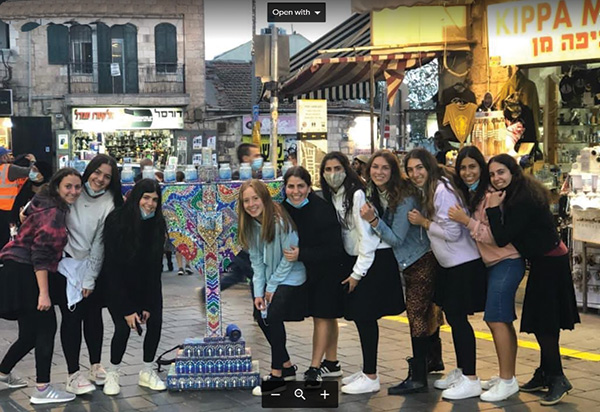
After the holidays were over, we jumped straight into creating a steady daily routine of learning. The classes given at Eshel are ones you would never think are being taught at a seminary. I thought I would be sitting all day learning about Jewish history which would not pertain to my life. However, after being here and attending countless classes at Eshel, I realized how wrong I was. The teachers and rabbis bring the Torah to life by relating everything we’re taught to our own personal lives and struggles. We learn the proper tools to help us become our best selves, improve our midot, and deal with struggles or conflicts which are part of life. The classes have helped me build my character tremendously and I feel my new positive outlook on life radiating onto others as well.
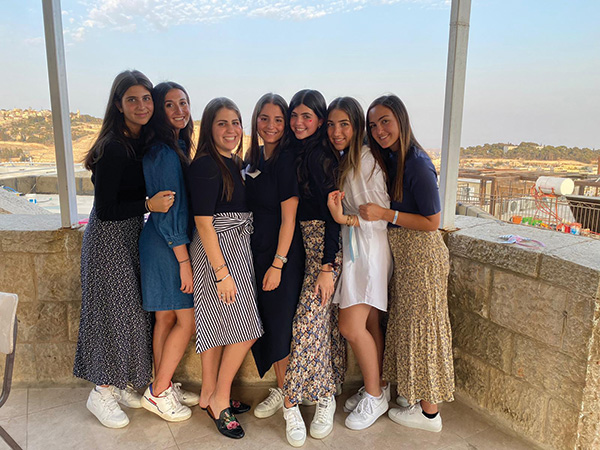
I feel great appreciation and gratitude for all I have, especially during the world pandemic where there is so much illness and uncertainty. Miriam Tawil, our exemplary school director always makes sure her students get the full experience of Eshel despite the limitations coronavirus puts on trips, and Shabbatons. The remarkable rabbis here build personal relationships with each student and have become mentors in all of our lives. Even though I miss my parents, siblings, and friends, here at Eshel I am happily a part of a wonderful family
SCF IN ACTION DURING COVID-19
The SCF helps Yeshivot access new government regulations resulting in $2 to 3 million benefits to NYC Yeshivot & Families this year.
WHEN COVID-19 HIT LAST MARCH, IT CAUSED MILLIONS OF PEOPLE TO LOSE THEIR JOBS, CLOSE THEIR BUSINESSES, OR STRUGGLE WITH STAGGERING REDUCTIONS IN SALES REVENUE. NO PART OF THE COUNTRY HAS BEEN SPARED AND THAT INCLUDES THE NEW YORK AREA SEPHARDIC COMMUNITY.
For the first time ever, many Community families found themselves struggling with food insecurity. The Federal Government acted to make sure its food programs, including the National School Free Breakfast and Lunch programs, would be available—even though schools were shut down.
During the initial and most challenging months of March, April and May, Shaare Torah Yeshiva and other schools that had been operating a meals program, kept their kitchens open. They further expanded their distribution so that no family would be turned away.
With the onset of the 2020-21 new school year, the Sephardic Community Federation (SCF) helped the yeshivot that had not previously participated in the food distribution program, secure millions in government dollars, so that every yeshiva child would be able to get free breakfast and lunch.
When schools reopened this September, a just-issued USDA-Food and Nutrition Services program waiver went into effect, allowing any school, public or private, to serve free breakfast, lunch, and snack, to all enrolled children regardless of income. This meant that Community schools could now offer free meals to all students. All families could get help without having to be singled out as “the new poor.” The waiver is in effect through June 30, 2021.

While Shaare Torah and other schools that had been giving out food to the public last year knew about this program waiver, other schools, however, could not have realistically known about it (unless they staffed a dedicated person to track and carefully study the fast changing, weekly flow of COVID-19 government regulations and waivers). The Sephardic Community Federation retains a consultant, Mr. David Rubel, to do just that. For the past 12 years, Mr. Rubel has worked closely with Mr. Sam Sutton, President of the SCF, on connecting Community schools to a myriad of government programs, translating to tens of millions of dollars in benefits over the years.
The team of Rubel and Sutton first alerted Magen David Yeshivah Elementary School to the fact that all their students are now eligible for the new free school breakfast, lunch, and snack program. MDYES immediately jumped on the opportunity to receive approval from the New York State Education Department-Child Nutrition Office (NYSED-CN). In practical terms, this means that for this year, the cost of all meals is covered by the government.
In addition, all MDYES students also received the COVID-19 Pandemic-Electronic Benefits Transfer (P-EBT) cards worth $420 per child for school year 2019-2020 totaling $520,000 given directly to parents. There will also be a second P-EBT card coming later this school year, albeit smaller, due to new government rules. All told, including the second round of P-EBT, MDY and its parents will have received close to $1,500,000 in newly granted government funding.
Next, SCF rushed to alert other Community yeshivot that had never operated a Federal-State funded meals program. In addition, all students enrolled in these schools will also be eligible for the waiver to receive the free breakfast and lunch, regardless of income. Schools that are new to the government breakfast/lunch program, needed to apply to NYSED-CN for approval.
After SCF discussions with Barkai Yeshiva, Yeshivah of Flatbush Elementary School, and Yeshiva Darchei Eres (YDE), all three schools completed and submitted applications with help from the SCF. Once these schools are approved, all their students will be eligible for the 2020-21 school year as well as the Pandemic-EBT program. This should lead to significant savings for all three schools. The total benefit to schools and their parents for this school year could reach an astounding total of $3,000,000!
The SCF is always working hard for the Community. Our decades-long established role as the Community’s liaison to our elected officials and government programs has positioned us to advocate for and deliver benefits for the overall well-being of our Community.
Sam Sutton is the President of the Sephardic Community Federation. Ron Tawil is Co-Chairman.
THE NEXT RIDE. ISRAELI PARA-ATHLETES PROVE AGAIN NOTHING IS IMPOSSIBLE
MANY PEOPLE FACED HUGE MEDICAL ISSUES THIS YEAR DUE TO COVID19. B”H A VACCINE WILL SOON BECOME AVAILABLE TO HELP US MOVE PAST THIS VIRUS THAT HAS TAKEN OVER OUR LIVES. WHAT HAPPENS WHEN THERE IS AN AFFLICITION THAT CAN’T BE SOLVED WITH A PILL?
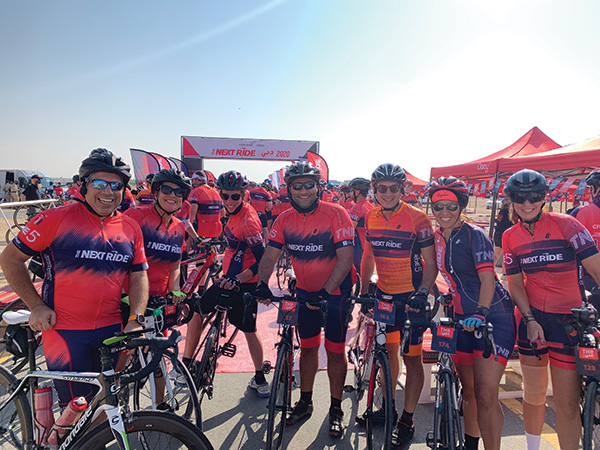
One of the most devastating medical challenges a person can ever face is the loss of a limb. Amputation affects every aspect of life, including functionality, family, and social status. There is only one organization in all of Israel that supports adults and children suffering from limb loss—Israel Medical Fund’s—The Next Step. It is funded by individuals like you as the Israeli Government falls short in providing the prosthetic limbs and mental health services necessary for amputees to thrive vs. simply survive.
The Next Ride is a 7-day, 200-kilometer adventure that raises money for The Next Step. Each year The Next Ride has always taken place in Israel, but because of COVID-19, Israel closed its borders. In fact, just weeks before the ride was supposed to happen, it had no home. Until Dubai not only opened its arms to this event, but because of the historic peace agreement, opened its borders to anyone from Israel—for the very first time.

This trip would not have been possible if not for the teamwork of Sam Waldman and Shoshana Jacobs who give their hearts and souls to the organization. Congresswoman Yvette Clarke and her community liaison Eli Slavin who procured passports for cyclists (for some literally days before their flights). Team SYclist leaders Morris Beyda, Joseph Mansour, Steven Shamosh and Steven Matsas have been promoting, recruiting, and leading the fundraising efforts in our community for years. Their collective efforts helped raise $1.7 million for those in need.
So, I did something I never imagined doing—especially in 2020. With my wife, my bike and Team SYclist we set off for Dubai.
In 90-degree desert heat and strong winds, 200 cyclists mounted up alongside 20 amputees and members of the Dubai Police Road Cycling Team. We talked about their love for America, Israel, and the Jewish people.
It was beautiful and grueling. Many cyclists said they likely would have given up if it were not for the inspiration and joyous attitudes of the amputees cycling with us. In fact, some cyclists could not finish the race—but every single one of the amputees crossed the finish line.
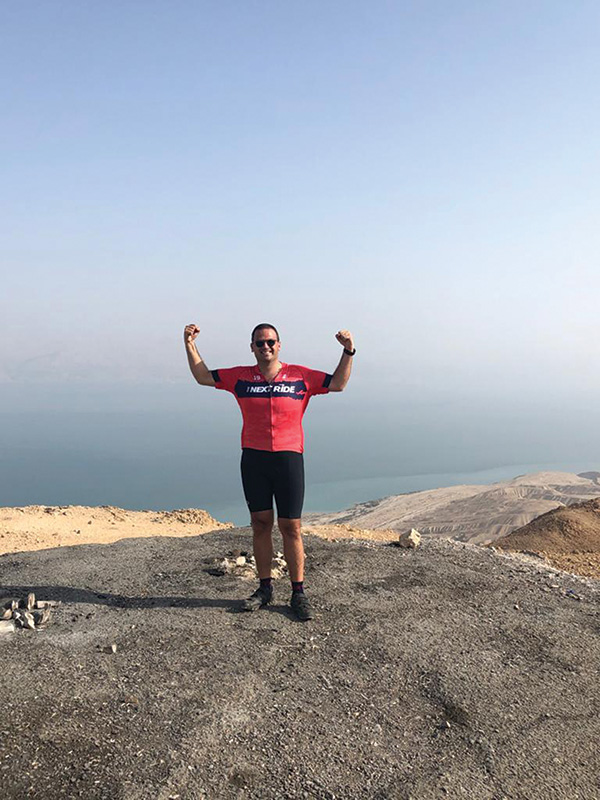
In addition to two days of cycling, we were the first Jewish group to have a minyan on an Emirates flight, the largest known group to have a Shabbat gathering, had dinner with sheiks, and while enjoying the nightlife, we got to see one of the Israeli paraathletes in our group drop to one knee to propose to his girlfriend. I am still buzzing from the week-long adventure and will be for months to come.
In a year that has been so much about being home, this rare taste of travel was refreshing. I can tell you, I have achieved many PR’s (personal records) and stood atop podiums at Ironman competitions and running events, but this event was more meaningful to me than any race I have done before. It reminded me, no matter the challenge, we can cross the finish line.
ARI BAUM
SONIA DIDIA & NANCY SUTTON. SEEING A NEED & ACTING ON IT
Sonia Didia entices you with her strong Lousiana accent, her Soutehrn charm and her ability to connect. Her soothing voice makes you feel relaxed, like you are sitting with a warm cup of hot chocolate all comfy and snuggled up. She loves talking to people, meeting them and more importantly helping them. Rena Shaab, Sonia’s mom, taught her the importance from hesed from a young age. “One time my mother was traveling from Baton Rouge to New York with my brother Irwin,” said Sonia. “Irwin was acting out and this nun on the train helped my mom. The nun ran an orphanage, and my mother sent her clothing every year for the children.”
As her children grew older, Sonia began volunteering with Sephardic Bikur Holim and then with Medstar, helping people in the community find doctors for their specific needs.
In providing those critical medical referrals, Sonia sometimes worked with cancer patients whose cases were more complicated. For example, a young woman undergoing treatment for breast cancer might feel weak and tired. With several young children the patient might need help with a housekeeper, someone to help with cooking and going to treatments.
As it happens, Sonia is good friends with Nancy Sutton, who founded Medstar. The two of them often teamed to help patients.
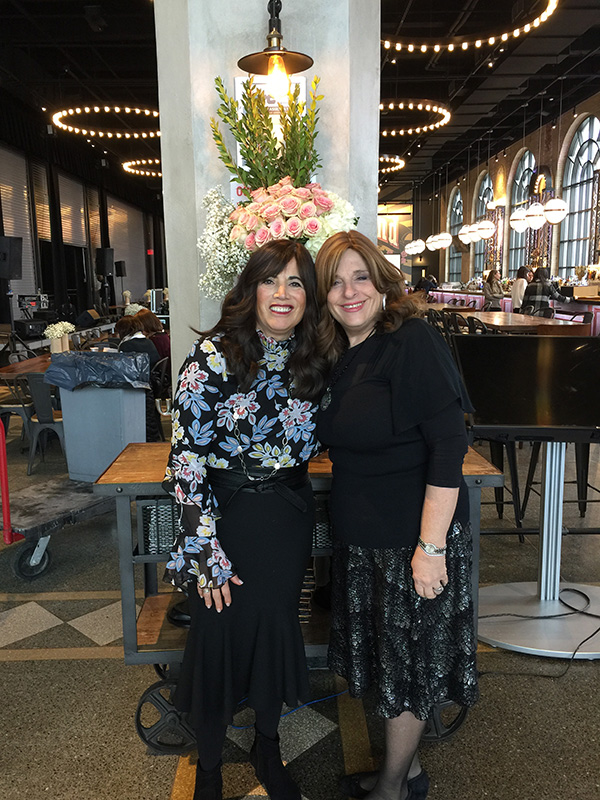
From the time she was a child, Nancy joined school programs and knew she wanted to make a meaningful difference in the lives of others. As a young woman, Nancy visited the sick. After she married, she took on projects, later even becoming a foster parent to 14 different children over several years. Her parents were a huge influence on her. Ceasar and Esther Salama had helped establish the Ahi Ezer Senior Citizen housing and programs. They loved to bring joy to seniors and never stop giving to others. Her aunt Gitta Sultan was a mentor with Beth Teens. So the idea of being a volunteer was deeply embedded in her family values.
As more and more calls came in for cancer patients, it became obvious that many cancer clients were not getting the proper assistance. They needed more than help with finding oncologists, surgery, biopsies and so forth. A holistic approach was needed for the patient and the entire family to think about.
And so the idea for forming the Morris I. Franco Cancer Center became more critical. Nancy was the doer, the go getter, the one that got things done.
Nancy Sutton described an incident that had a huge impact on her life. While at Medstar, she was called to help when a 5-year-old boy and his pregnant mother got hit by a bus. The father was beside himself and the boy was in a coma and needed significant medical help. Within minutes of arriving at the hospital and assessing the situation, Nancy realized her small but effective actions could make a difference.
She spoke to doctors, called hospitals, until she was able to get the boy transferred to a better hospital. The boy came out of the coma and both mother and child survived, although rehab was necessary. Years later, the young boy received a youth award for volunteerism. Nancy’s commitment to helping others came full circle. To Nancy, her volunteer time is rewarded as others volunteer to become involved in hesed (acts of loving kindness).
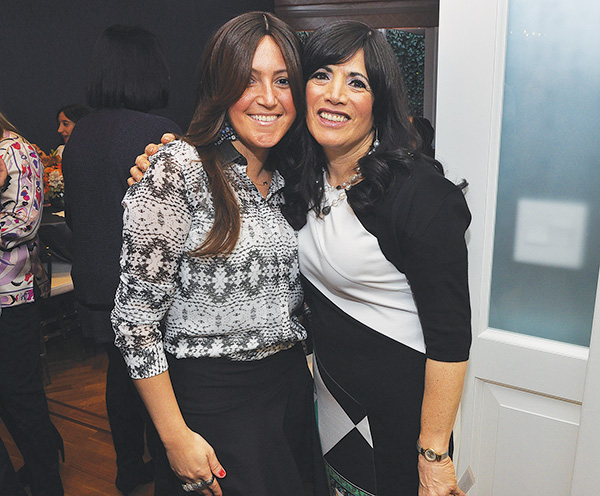
“As I saw the need to help patients with cancer, we looked for best practices in the field,” said Nancy. “We visited hospitals, the Mayo Clinic and even saw Gilda Radner had opened support groups. We saw libraries so we set up a library. The diagnosis of cancer is just the beginning.”
And so Nancy—the doer—was able to form the Morris I. Franco Cancer Center as a separate nonprofit organization operating from offices rented from Sephardic Bikur Holim.
A turning point for the organization came in the beginning, when a Breast Cancer Awareness Day attracted 750 women from the community.
And from there the Morris I. Franco Cancer Center took off with dozens of volunteers, social workers, support groups and other services. They serve patients from young children to the elderly. They help patients get through their medical issues, but they also assist with day to day problems. For example, if someone needs to go to a wedding, they help them feel pretty, so the patient looks presentable in public during the event. Arts and crafts become a support group so the patients can talk among themselves and share experiences.
“Losing your hair and getting fitted for a wig can be traumatic,” said Sonia, “so we help with wigs. I like helping people. It’s uplifting. You feel like you are doing something to enhance their lives. With cancer, it’s helping the whole family through a broad spectrum of issues.”
Social occasions are planned such as trips to museums. A few families are selected each year to go to Disney World, akin to the Make a Wish grant. Highly trained volunteers understand the rules of privacy and deliver Shabbat packages.
“Sometimes patients are shy about coming in for help. Nancy is patient and she convinces them to use our services and they are so appreciative,” said Sonia. “We treat them as people, not as victims of an illness and that’s a good way to reach them.”
Patients can take advantage of massage therapy, Reiki, yoga, group counseling and private therapy. A group chat on WhatsApp allows people to reach out for help for example, if a patient is feeling unwell and needs someone to drop off a meal for the family.
So how is the Morris I. Franco Cancer Center managing during the Covid pandemic? “Our patients are even more vulnerable and at risk, so we have to be very careful,” said Nancy.
The Cancer Center has switched to remote (Zoom) yoga, group and private counseling services. “We help people on the phone as much as we can,” said Sonia. “One thing I have learned is that to help patients, you need to be proactive, especially with the medical profession.”
Nancy said, “We created the Cancer Center to create better outcomes and to help the mind, body and soul of each client. We help the entire family. It has become a place to smile, a place to be okay with what’s happening in their lives. Emotional happiness helps the clients and their families cope.”
SARINA ROFFE
Read Jewish Image Magazine Online – January 2021
Read Jewish Image Magazine Online – January 2021
Click Here
To View Jewish Image Magazine in PDF
Click here
DSN’S AFTER-SCHOOL PROGRAMS LAUNCH WITH RECORD NUMBERS
WHETHER IT’S PENT-UP DEMAND OR THE DRAMATIC INCREASE IN FAMILIES LIVING IN THE JERSEY SHORE, DSN’S AFTER-SCHOOL PROGRAMS LAUNCHED IN NOVEMBER WITH THE HIGHEST NUMBER OF CHILDREN SIGNED UP, EVER!
DSN is motivated by two main goals in this season’s after-school programs: safety and fun. Parents seem to agree with DSN Board Member Sandra Sutton who explained, “Now more than ever, our children need an outlet and DSN is here for them. Through specialized classes such as art, gymnastics, tennis, sports, karate, basketball and STEM classes, each child is able to participate in a social, fun and nurturing activity while adhering to all the guidelines set forth to keep them safe”.
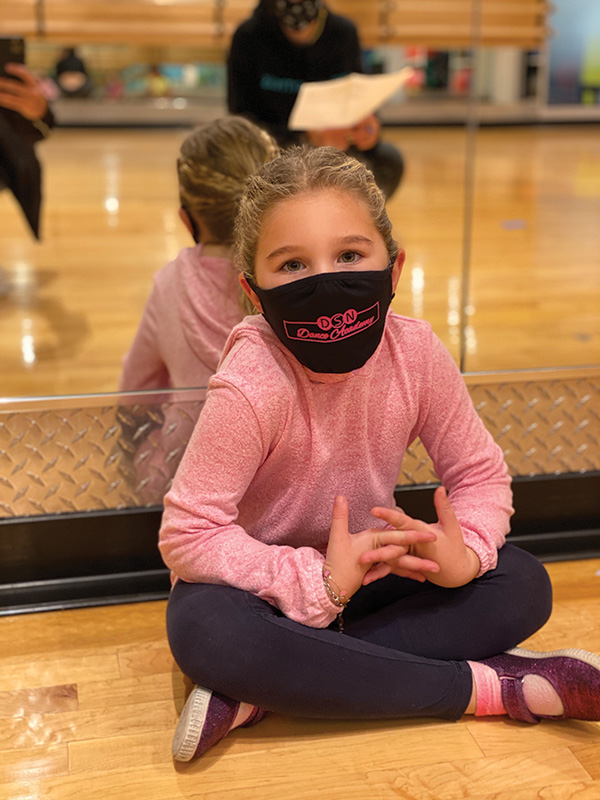
DSN services over 400 children that are enrolled in these programs. The children are brought to DSN after their school day is complete. All programs are executed safely with COVID precautions. Children receive temperature checks before entering DSN. Masks are worn for every activity, and participants are spaced out to maintain distance from others.
DSN’s Chairperson of Youth Programming, Linda Hakim, remarked, “DSN once again has risen to the challenge by providing the community’s children with a wide variety of after-school programs to engage, stimulate and promote their social and emotional wellbeing in these unprecedented times.”
The largest program once again is DSN’s Dance Academy. Over 120 girls are signed up. Under the leadership of Dance Director Danielle Hanan, the Academy has various types of dance instruction, including hip-hop, jazz-funk, ballet and tap.
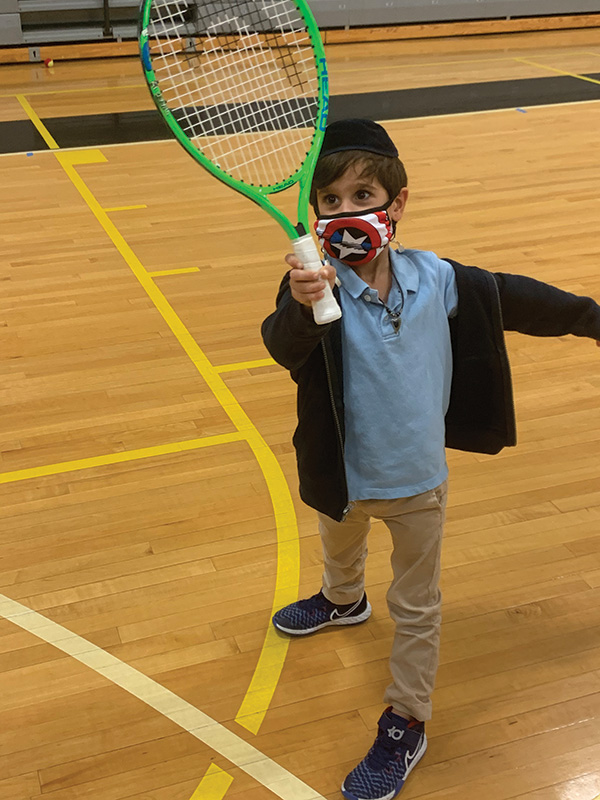
DSN parent Caleigh Silvera explained her daughter’s excitement, ”My daughter is unfazed by the new rules. She took it upon herself to wear her mask in the car ride to DSN for her first dance class so that she would be ready right away. She came home begging me to send her back the following day. I could not be happier!”
Frieda Shamah, DSN’s Youth Programming Director, was ecstatic to see the children back in the building. “These kids bring life to DSN. We are so happy to have them back in the building, having fun as always in the safest way possible!”
This season’s programming at DSN includes the popular Grace Esses Gymnastics, Little Silver Tennis Club (yes, the tennis instructors and tennis nets all come to DSN) and Jill Levy Art. The programming is for grades Pre-k through 8th grade. Programs last from 12 to 20 weeks.

DSN, true to form, has gone above and beyond. They have given out light wands along with Sylvia’s candy bags to all participants, a special treat for special circumstances. The Dance Academy participants received specialized bags with logos on their masks and water bottles and pink light wands. A backdrop banner was stationed in the DSN hallway for the girls to take pictures in front of, with a sign that said “I had the best time at Dance Academy!” One doesn’t have to see behind a mask to know the sweetness is not just in the candy, but in the smiles on their faces.
DSN’s Executive Director, Sammy Sitt, summarized, “Our staff has tirelessly put their hearts and souls into our youth programming for the past 6 months. We completed a very successful summer, running 3 separate camps with 260 campers, organized fall sports leagues with a record 700 players and have launched after-school programs with over 400 children. We are humbled by the community’s trust in our ability to keep our children safe, while still having fun. With our passionate staff and supportive board, it’s a recipe for continued success for years to come!”
THE BEST HANUKKAH GIFT
As you begin to explore Hanukkah gifts, please pause and reflect for a moment. What is the greatest gift you received from your parents or grandparents? Maybe it was big or small, costly, or not? As you remember and reflect on this gift, and the story around it, what meaning does this gift have for you? What do you notice?
Where did the custom of giving Hanukkah gifts originate? What’s the point of them?
Research for this article uncovered interesting findings about Hanukkah gifts. There are sources mentioning giving Hanukkah “gelt” (money), and references to giviving charity, especially to Torah scholars. These traditions directly relate to undoing the harsh decrees during the Temple era forbidding teaching Torah and assaulting our Jewish lifestyle and mitzvot. In the holy seforim (books) of Kabbalah, it is written that one can affect atonement for severe sins by doing teshuva (repentance) and giving charity during the days of Hanukkah. Other references to gifts, such as giving on Purim, are a means for creating goodwill and enhancing relationships. There are no Jewish sources for 8 nights of gifts.
Hanukkah’s miracle is a message of Torah light and hope in the longest, darkest nights of winter. This year, with so much turmoil, fear, anxiety, political persecution, and lives lost, it’s as important as ever to celebrate and communicate with our children the ”ness” (miracle) and present-day relevance of Hanukkah. How necessary it is for us to infuse the magic of Hanukkah into our current realities! The big question remains, how can we manage to do so?
How can we get the best results?
Let’s begin with avoiding the mistake of giving a potentially harmful gift. The two biggest mistakes we can make is giving a gift that will damage someone or end up costing them more money and headaches. I remember the story in the early 1980s of a rabbi who received a cellphone as a gift from the congregation. At the time, cell phones cost $3-5 per minute and needed an entire briefcase for the brains and battery. The rabbi said with a smile, “They gave me a present. It costs me $1,000 a month for the service, and I can’t drive 5 minutes in peace and quiet. Some gift.” Also, let’s remain vigilant not to create “Fortnight Zombies” and overexposing our kids to environments or situations they may not be properly prepared or capable of handling.
Three ways to achieve success with our gifts.Give the gift of connection and relationship. What if we commit to sit together as a family near the candles as they burn brightly and share the songs, tefilot, and stories of Hanukkah? Each night, choose a different grandparent or community member to remember and learn from. Revel in stories of heroism, sacrifice, values, ideals, commitments, struggles, and successes. Create questions and dialog around these personalities, their lives, lessons, and how we can apply them to ourselves today. Imagine the positive impact and value of enhancing our children and grandchildren’s lives with role model ancestors they can emulate.
Give the gift of heritage. Most of us look forward to sufganiyot (jelly donuts), ejjeh (latkes), or other specially prepared food customs. Who is going to remember the authentic way to prepare these delicacies? Who is going to replicate the love and care that grandma infused in them? What a delicious treat it will be to bridge the legacy and learn from grandparents how this was done back home for many generations!

Think outside of the box. What projects, ideas, introductions, and interviews can we create to transmit the rich heritage and minhag (customs) that goes back in our families for thousands of years? Perhaps something forgotten or something so obvious that we never talk about it? What are your ideas and inspirations for connecting the past, present, and future to enhance our generation and future generations in celebrating G-d’s miracles, our survival, and the ability to learn and live Torah? How much rich culture and history can we recover by engaging with our children and connecting them to our mesorah (heritage)?
I believe the greatest gift we can give and receive is the message that G-d loves you, your family loves you, and you love them too. We must continuously be communicating “I love you,” and ensuring that our children hear it and accept it. This message is the gift that will last for all generations to come.
PROPEL: LIGHTING YOUR CAREER PATH
Hanukkah represents the Jewish people’s tenacious refusal to give up on their values. It represents working hard to change the situation. It stresses education and an eye toward the future. Confronted by the evil assimilationist decrees of the Syrian Greeks, the tiny band of Hasmoneans said, “This has to change.” Despite the seemingly insurmountable odds, they persisted, and achieved the only period of true independence during the Second Temple. And women played a key role in the story.
At its core, PROPEL represents many of the same values. Its dedicated board members, supporters and professional staff do not give up, helping each client dream and then plan to actualize that dream. Obstacles are encountered and jointly overcome. Working to marshal resources within the community and beyond, providing encouragement and a cheering squad every step of the way, PROPEL has helped over 200 women this year alone. Tailoring plans to specific client needs, PROPEL’s career coaches facilitated change in these women’s—and their families’—lives and incomes. COVID-19 brought a new set of challenges. And PROPEL was there, researching and implementing the best ways to serve, without compromising on any aspect of their service delivery.
Can’t meet coaches face-to-face? Zoom and cell phones have made technology our best friends. Want to start college? Classes are available online and by Zoom. Thanks to the Internet (and the good old-fashioned phone), clients still receive that signature PROPEL personal touch. PROPEL continues to provide mentoring, coaching and information to women entering the workforce.
PROPEL enables the women of our community to earn and help support their families while maintaining our values. PROPEL provides career advice to women of all ages, including women in high school, college and graduate programs. The organization encourages the women of our community to tap into their potential by utilizing education to transform a passion into a profession. Working with area colleges, the PROPEL team finds the best fit for each client, based on goals, background and personal circumstances. Training and professional certification programs are also available to PROPEL clients. Financial support is available to help women reach their goals. PROPEL also promotes networking opportunities, so that clients can receive targeted advice and mentorship for specific careers and work to advance their earning potential. PROPEL encourages women to be the heroes.
Want to create your own Hanukkah miracle? Reach out to PROPEL.

